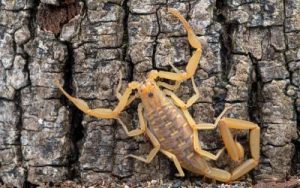
Are Scorpions Venomous?
One of the most frequently asked questions is: Are scorpions venomous? They are venomous, but the full explanation goes beyond a simple yes.
Scorpions are fascinating yet often feared creatures, especially in warmer climates where they’re more common. With their menacing pincers and curved stingers, it’s no surprise people wonder how dangerous they truly are.
Pest Control Inc is here to walk you through the science behind scorpion venom, the potential dangers of a sting, key symptoms to know, and the best ways to safeguard your home.
What Does It Mean for a Critter to Be Venomous?
A venomous creature produces toxins and delivers them through a bite or sting. Scorpions fall into this category because they inject venom using the stinger on the end of their tail. Every known species of scorpion is venomous to some degree, but not all pose a serious threat to humans.
Scorpion venom is primarily used for hunting prey and self-defense. While it may sound alarming, the venom is usually only potent enough to paralyze insects or small animals. However, for humans, the severity of a sting can vary widely depending on the species, the amount of venom injected, and the individual’s reaction to the sting.
Are All Scorpions Dangerous to Humans?
Out of over 2,000 species of scorpions worldwide, only 25 have venom strong enough to be considered lethal to humans. In Clark County NV, the following scorpion species are commonly encountered and should be recognized for the potential risks their stings may pose:
- Bark Scorpion: This slender, tan, or tan/yellow species is the most venomous scorpion in North America. Its sting can cause intense pain, numbness, and in rare cases, more serious symptoms such as breathing difficulties or muscle twitching, especially in young children or older adults.
- Desert Hairy Scorpion: The largest scorpion species in the U.S., this one is yellowish with darker markings and a hairy body. While its sting is painful, it is typically no more dangerous than a bee sting for most people. However, allergic reactions are still possible.
What Does a Scorpion Sting Look Like?
The symptoms of a scorpion sting can vary widely, depending on the person’s sensitivity and the species involved. Most stings result in sharp, localized pain, swelling, redness, tingling, or numbness around the site. The area may appear slightly raised or inflamed, looking similar to a bee or wasp sting. Some people may also experience mild muscle twitching near the sting.
While serious symptoms are uncommon, they can occur more severely in vulnerable individuals. Severe reactions may include difficulty breathing, trouble swallowing, high blood pressure, or unusual restlessness, particularly in children. Young kids, older adults, and those with weakened immune systems face a higher risk of complications. Seek medical attention immediately if any of these symptoms develop.
How to Help Prevent Scorpion Encounters
Scorpions are nocturnal and tend to hide in dark, cool places during the day. They can enter homes through small openings, cracks, and vents, especially in dry or hot environments where indoor spaces offer more stable conditions. Here are some effective ways to prevent scorpions from getting into your home:
- Seal Entry Points: Close up cracks in walls, windows, and doors to prevent scorpions from sneaking inside.
- Block Gaps: Install weather stripping and door sweeps to eliminate small openings around doors.
- Check Belongings: Shake out shoes, towels, and clothing before using, especially if they’ve been left on the floor.
- Declutter Spaces: Keep both your yard and indoor areas free of unnecessary clutter where scorpions could hide.
- Remove Hiding Spots: Clear away woodpiles, rocks, and other debris that can serve as shelter for scorpions.
When to Call a Professional Exterminator
If you’ve seen more than one scorpion in your home or yard, or worse, if someone has been stung, it may be time to call in a professional scorpion exterminator. Scorpions are tough to eliminate on your own. They’re highly resilient and often hide in small, hard-to-reach areas, making DIY methods less effective.
A licensed pest control expert can identify the species, locate hiding spots and entry points, and apply safe, targeted treatments. They can also provide long-term prevention strategies to keep scorpions from coming back. If you live in an area where venomous scorpions are common, hiring a professional is a smart way to protect your home and ensure your family’s safety.
Protecting Your Family from Scorpions
At Pest Control Inc in Clark County NV, our licensed experts handle all sorts of pests, but scorpions continue to demand special attention. Because they are venomous, it’s always safest to avoid contact and let trained professionals help keep your family protected. With the right tools and over 20 years of experience, our team knows how to locate, remove, and prevent scorpions quickly and safely.
If you’re dealing with scorpions, call Pest Control Inc for safe and professional removal.

